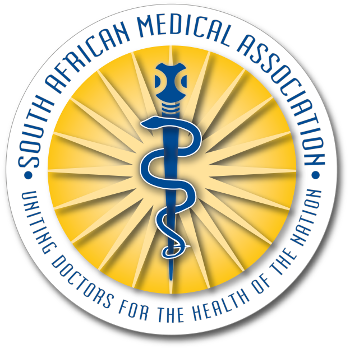FOR IMMEDIATE RELEASE
30 October 2017
Emergency funding needed to combat climate change - WMA
Call supported by SA Medical Association
The South African Medical Association (SAMA) says it supports a call from the World Medical Association (WMA) for national governments to provide designated funds for the strengthening of health systems to combat climate change.
In a policy statement adopted at its annual Assembly in Chicago, the WMA emphasises the urgency for taking action and for emergency planning on local, national and international levels.
“With the next United Nations conference on climate change less than a month away, it is important the voice of the world’s physicians is heard about the risks posed to health by climate change,” says Dr Yoshitake Yokokura, WMA President.
The WMA says human influence on the climate system is clear, with recent emissions of green-house gases the highest in history. Recent climate changes have had widespread impact on human and natural systems. Compelling evidence proves numerous health risks which threaten all countries. These include more frequent and potentially more severe heatwaves, droughts, floods, storms and bushfires.
“In our own country we have seen the impact of climate change. Parts of our country are in the grips of drought, others experience floods. As medical professionals we have to ensure we are in a position to adequately deal with the fallout from these changes, and more funding to strengthen health systems is not only necessary, it’s vital,” says Dr Mzukisi Grootboom, chairperson of SAMA.
Climate change, especially warming, is already leading to changes in the environment in which disease paths flourish. There is reduced availability and quality of potable water, and worsening food insecurity leading to malnutrition and population displacement. And although climate change is universal, its effects are uneven, with many of the areas most affected the least able to manage the challenges it poses.
Those with generally the poorest health and lowest life and health expectancy will be least able to adapt to the adverse effects of climate.
Dr Yokokura says: ‘We are also urging national governments to provide for the health and wellbeing of people displaced by environmental causes, including those becoming refugees because of the consequences of climate change’.
FOR IMMEDIATE RELEASE
30 October 2017
Emergency funding needed to combat climate change - WMA
Call supported by SA Medical Association
The South African Medical Association (SAMA) says it supports a call from the World Medical Association (WMA) for national governments to provide designated funds for the strengthening of health systems to combat climate change.
In a policy statement adopted at its annual Assembly in Chicago, the WMA emphasises the urgency for taking action and for emergency planning on local, national and international levels.
“With the next United Nations conference on climate change less than a month away, it is important the voice of the world’s physicians is heard about the risks posed to health by climate change,” says Dr Yoshitake Yokokura, WMA President.
The WMA says human influence on the climate system is clear, with recent emissions of green-house gases the highest in history. Recent climate changes have had widespread impact on human and natural systems. Compelling evidence proves numerous health risks which threaten all countries. These include more frequent and potentially more severe heatwaves, droughts, floods, storms and bushfires.
“In our own country we have seen the impact of climate change. Parts of our country are in the grips of drought, others experience floods. As medical professionals we have to ensure we are in a position to adequately deal with the fallout from these changes, and more funding to strengthen health systems is not only necessary, it’s vital,” says Dr Mzukisi Grootboom, chairperson of SAMA.
Climate change, especially warming, is already leading to changes in the environment in which disease paths flourish. There is reduced availability and quality of potable water, and worsening food insecurity leading to malnutrition and population displacement. And although climate change is universal, its effects are uneven, with many of the areas most affected the least able to manage the challenges it poses.
Those with generally the poorest health and lowest life and health expectancy will be least able to adapt to the adverse effects of climate.
Dr Yokokura says: ‘We are also urging national governments to provide for the health and wellbeing of people displaced by environmental causes, including those becoming refugees because of the consequences of climate change’.
Notes to Editors
About SAMA
The South African Medical Association was formally constituted on 21 May 1998 as a unification of a variety of doctors’ groups that had represented a diversity of interests. SAMA is a non-statutory, professional association for public, and private sector medical practitioners. SAMA is a voluntary membership association, existing to serve the best interests and needs of its members in any and all healthcare related matters.
Contact:
Head of PR & Communications
Dr Simonia Magardie
082 905 8505
Email: simoniam@samedical.org
Spokesperson
Chairperson: SAMA
Dr Mzukisi Grootboom
072 633 1114
Email: mzukisi@mweb.co.za
Spokesperson 2
Vice-Chairperson: SAMA
Prof Mark Sonderup
083 626 1909
Email: msonderup@samedical.co.za
